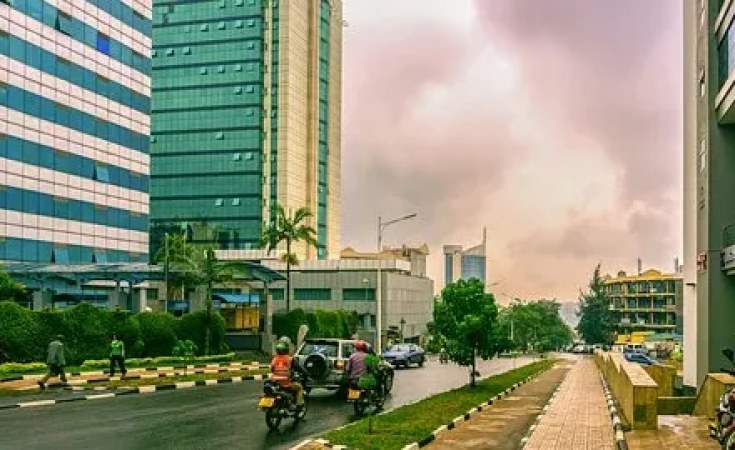As a physician and public health scholar observing the recent Marburg virus outbreak in Rwanda, I am both highly concerned and hopeful. The confirmation of Marburg virus disease (MVD) --a hemorrhagic fever similar to Ebola, marks a significant challenge for the nation.
With an average case fatality rate of around 50%, and historical variations ranging from 24% to 88% depending on the virus strain and case management, MVD poses a threat to Rwanda's public health. Yet, the country's robust health system and proactive measures suggest that it is well-positioned to contain this outbreak effectively.
The Rwandan Ministry of Health has acted promptly since the first cases were identified. Enhanced preventive measures have been implemented across all health facilities, including rigorous contact tracing and the isolation of confirmed cases for treatment. However, given the virus potentially prolonged incubation period, it might have quietly permeated communities masking its presence until symptoms became unmistakable. It is possible that the outbreak likely began weeks before the first cases were identified with initial patients being healthcare workers who had been unknowingly exposed.
As of October 3, with 37 confirmed cases and 11 deaths, this has become the fourth largest Marburg outbreaks recorded, making it the 18th since the virus was first identified in 1967 in Marburg, Germany.
Most of the affected districts are urban areas in and around the capital, Kigali. Urban settings present unique challenges for outbreak containment due to higher population density and increased mobility. Based on current data and epidemiological projections, it's likely that case numbers will increase over the next one to two weeks before reaching a plateau. Effective containment lies in maintaining rigorous contact tracing, promptly isolating infected patients, quarantining their close contacts, enforcing strict infection prevention and control protocols, and fostering community engagement through targeted public education campaigns.
The Ministry's epidemiological work in tracing how the virus has spread over the past few weeks has been commendable. The country's primary care system, as well as tertiary care including isolation and intensive care units, are robust. However, supporting healthcare providers will be of utmost importance, especially as some have fallen ill and have died. Nurses and doctors, who provide intensive care and are at higher risk due to close patient contact, are under particular pressure. Among the affected was Dr Claudine Uzamukunda, a consultant anesthesiologist, and a mother of three. When she fell ill, her colleagues rallied to provide the best care possible, even as they grappled with fear and uncertainty. Her story is one of many that shows the human cost of this outbreak.
The initial infection of healthcare workers indicates a gap in epidemic intelligence during non-epidemic periods. Early symptoms of Marburg virus often mimic common illnesses like malaria or typhoid fever, leading to misdiagnosis and delayed infection control measures emphasizing the need for robust epidemic intelligence systems that remain active even without known outbreaks. Maintaining vigilant surveillance at all times allows health systems to identify unusual patterns of illness promptly, initiate appropriate responses, and ultimately protect healthcare workers and the broader community from widespread transmission.
One of the most pressing challenges in managing the Marburg virus outbreak is the absence of approved vaccines and treatments.
Unlike Ebola, for which FDA and WHO-approved vaccines and therapeutics now exist, Marburg virus disease lacks approved vaccines and therapeutics. Although experimental treatments like monoclonal antibodies and antiviral drugs such as remdesivir have demonstrated promise, they are not yet widely accessible for general use. It's profoundly troubling that, despite repeated Marburg outbreaks in recent years and persistent calls for enhanced vaccine development, the global health community remains repeatedly unprepared for the next outbreak. However, there have been progress: a promising vaccine candidate has advanced to Phase 2 clinical trials, supported in part by funding from the Biomedical Advanced Research and Development Authority (BARDA). Encouragingly, the Rwanda Minister of State has just announced on X platform that Rwanda is about to start vaccine and therapeutic clinical trials to protect high-risk groups. This is a hopeful and positive development, especially for those currently infected and in isolation, as well as for healthcare workers on the frontlines who face increased risk.
As we look to the future, it is likely that the situation will remain challenging in the short term. Case numbers may fluctuate, and the risk of cross-border spread requires vigilant monitoring. However, Rwanda's proactive approach and strong health infrastructure provide a solid foundation for eventual containment. The international community must continue to offer support rooted in solidarity and respect. Conflicting directives from embassies and international organizations that differ from Rwandan government guidelines--can undermine transparency and collaboration. Instead, a focus on shared goals and mutual aid will enhance the effectiveness of the response.
Lastly, the Marburg virus outbreak in Rwanda serves as a reminder of the ever-present threat posed by infectious diseases. It highlights the heroism of healthcare workers who, despite personal risk, stand at the forefront of the battle. Their sacrifices compel us to advocate for better protections, adequate resources, and decent remuneration for those who dedicate their lives to safeguarding public health. As the nation navigates this crisis, let us all stand in solidarity--support the patients, honor the healthcare workers, and follow the ministry of health preventive instructions to help protect us all.
In honoring the courage of those affected and the dedication of those responding, we write a story not just of a nation's struggle, but of its unwavering spirit and the collective power of compassion.
The writer is a Rwandan physician and a Doctor of Public Health Student at Boston University specializing in public health leadership, management and policy.


